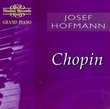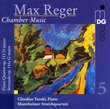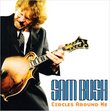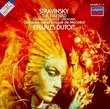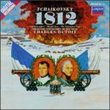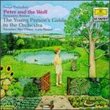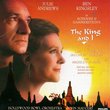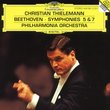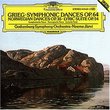| All Artists: Amilcare Ponchielli, Antonino Votto, La Scala Theater Orchestra & Chorus, Maria Callas, Aldo Biffi, Piero Cappuccilli, Irene Companez, Fiorenza Cossotto, Renato Ercolani, Pier Miranda Ferraro, Carlo Forti, Bonaldo Giaiotti, Leonardo Monreale, Ivo Vinco Title: Ponchielli: La Gioconda (complete opera) with Maria Callas, Fiorenza Cossotto, Antonino Votto, Orchestra & Chorus of La Scala, Milan Members Wishing: 0 Total Copies: 0 Label: EMI Classics Release Date: 8/19/1997 Genre: Classical Styles: Opera & Classical Vocal, Historical Periods, Modern, 20th, & 21st Century Number of Discs: 3 SwapaCD Credits: 3 UPCs: 724355629128, 724355629159 |
Search - Amilcare Ponchielli, Antonino Votto, La Scala Theater Orchestra & Chorus :: Ponchielli: La Gioconda (complete opera) with Maria Callas, Fiorenza Cossotto, Antonino Votto, Orchestra & Chorus of La Scala, Milan
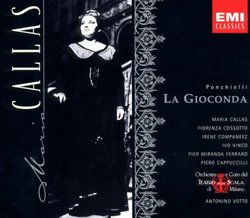 | Amilcare Ponchielli, Antonino Votto, La Scala Theater Orchestra & Chorus Ponchielli: La Gioconda (complete opera) with Maria Callas, Fiorenza Cossotto, Antonino Votto, Orchestra & Chorus of La Scala, Milan Genre: Classical
The mercilessly self-critical Maria Callas considered her singing in the last act here among the most satisfying of her records, saying that "it's all there for anyone who cares to understand or wishes to know what I was... more » |
Larger Image |
CD DetailsSynopsis
Amazon.com essential recording The mercilessly self-critical Maria Callas considered her singing in the last act here among the most satisfying of her records, saying that "it's all there for anyone who cares to understand or wishes to know what I was about." "Suicidio" emerges less a histrionic soliloquy than an interior, multi- dimensional monologue. Moreover, the soprano is in better voice than her 1952 Cetra Gioconda, which, however, boasts a more vibrant supporting cast, greater energy from the podium (especially in the first act), and avoids a small but not insignificant cut Antonino Votto makes here in the final act. EMI furnishes full texts and translations, an excellent essay that places this recording in context, and excellent remastered sonics. --Jed Distler Similar CDs
Similarly Requested CDs |
CD ReviewsThe final great recording. Boz | 07/21/1999 (5 out of 5 stars) "An old saying goes,"Before the candle flickers out, it flares for one more magnificent moment". This is Callas' last great moment, and it it truly magnificent. Incandescent, searing, and unforgettable. A must-have recording." Great Gioconda and a deaf fan from S.F. ! ! ! P. Emilio Rossi | Caracas, Venezuela | 11/20/1999 (5 out of 5 stars) "Callas, was the first and more splendid Gioconda. The role of Gioconda needs a great low notes, colorature for the last act, and great expression. In Callas all this requisites are completed. Nobody other soprano sing this role as Callas. I am really surprised for the fan of San Francisco. He is deaf ! ! ! All the passion and tragedy are insuperables with Callas. The Gioconda was not a great role of Renata Scotto (Great Lucia and Butterfly). All the musical critics in the world recognize this interpretation as the most complete. The Caballe and Milanov (great voices) had very weak low notes and low expressivity.The other singers of the cast are very suitables (in special mode Cossotto and Cappucilli). The only disaster here is the fan of San Francisco ! ! !" THIS IS ONE OF THE BEST OPERAS SUNG BY CALLAS Mario Gonzalez Dorado | 11/05/2002 (5 out of 5 stars) "I think that Maria Callas is the best singer of all the times when she sings this opera. This opera is worth listening again and again, because there are so many things to talk about. The singing but also the acting (the acting by the voice, that is so important), the opera itself, the dramma which lives here, in this box. Open it, put the CDs in your CD recorder, and enjoy what I think is one of the masterpieces that Callas left to us. Wonderful!"
|

 Track Listings (15) - Disc #1
Track Listings (15) - Disc #1